In the section of Science and Creationism called "Evidence Supporting Biological Evolution," anyone hoping to find evidence for the theory of evolution will suffer a grave disappointment. The chapter contains subjects which evolutionists never cease repeating, like a mantra, even though their invalidity has been proved time and time again. Naturally enough, "natural selection," regarded as one of the fundamental mechanisms of evolution, heads the list of these mantras.
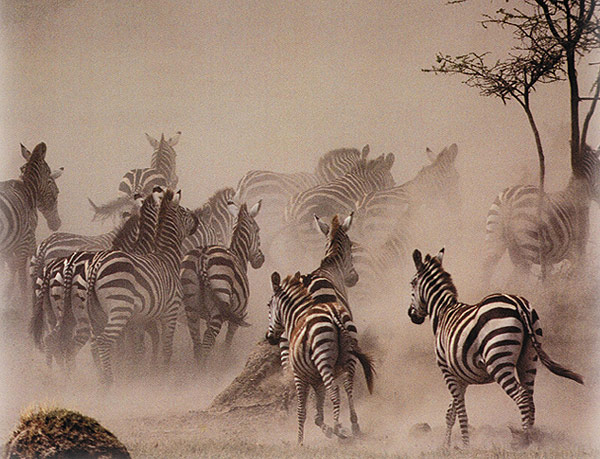
In a herd of zebra, the fastest runners have a better chance of survival, and slower runners are hunted down and eliminated. As a result, this herd will consist of fast runners in a few generations' time.
The correct definition of natural selection, which was known well before Darwin, is this: Those living things whose features are best suited to the conditions in their surroundings naturally have a better chance of survival. For instance, in a place where winters are long and the ground remains covered with snow for extended periods, white-furred rabbits will be better camouflaged and fall prey to predators less often than darker ones, giving them a greater chance of surviving, and thus of reproducing. This being the case, the proportion of white-furred rabbits in the population will keep rising, while the relative number of dark-furred rabbits will decline. To give another example, in a herd of zebras which constantly have to flee from leopards, those which run fastest will survive while the others die. Since fast runners will survive in every generation, the herd will come to consist of nothing but fast runners in a few generations' time.
That is the definition of natural selection: the best-adapted survive, while the others are eliminated. That is why the species in question continues to become ever better adapted. This may not always apply, of course. For example, in an area where the climate is changing and the snow covering is disappearing—say, due to global warming—the white rabbits would suddenly be at a disadvantage compared to dark rabbits, and so, having now become poorly adapted, they would be doomed to disappear. Therefore, natural selection cannot always be expected always to select the same features for a given species.
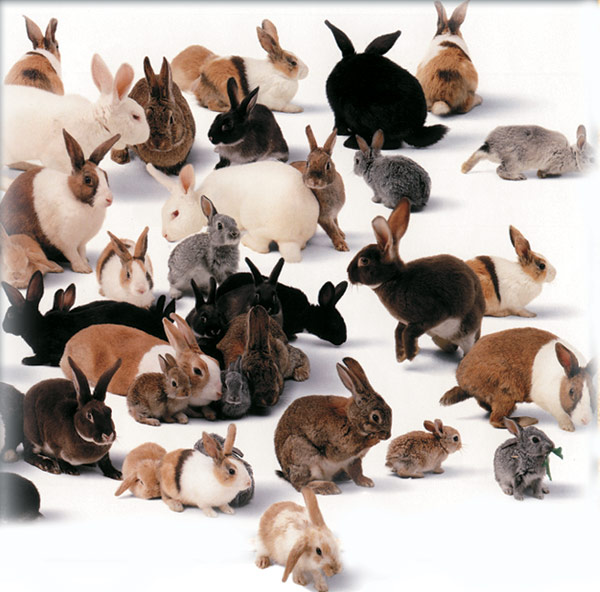
Evolutionists, however, believe that natural selection selects and gradually accumulates the same features in a species over millions of years, acting on variation within a species and then somehow giving rise to entirely different species. The fact is, however, that even if natural selection did always select the same characteristics, this would only lead to the improvement of certain features in living species by spreading advantageous characteristics throughout the whole population. It could not lead to these beings' acquiring totally new characteristics. Much less, then, could it afford them the opportunity to turn into other species.
Rabbits always remain rabbits, and zebras remain zebras. That is because the genetic pool (genome) of a species prevents it from turning into another one. A species can only change to the extent permitted by its genes.
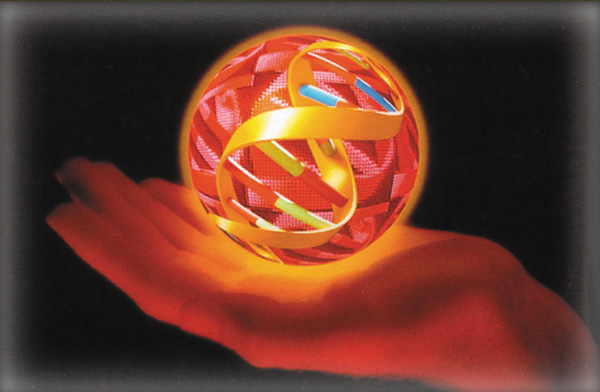
A species can only change to the extent that its genes permit.
Darwin, however, loaded an extra meaning onto natural selection over and above this scientific definition, and suggested that it was the basic mechanism of evolution. According to Darwin and contemporary evolutionists, natural selection, devoid of any reason or consciousness, began with a single-celled bacterium and gradually, over billions of years, created such marvels as trees, birds, flowers, ants, deer, parrots, strawberries, oranges, horses, peacocks, and human beings. It is clear that this claim is inconsistent and unscientific, because natural selection cannot bring about new characteristics or new genetic information; it can only select between among what already exists.
Stephen Jay Gould, one of the theory of evolution's most prominent supporters, says that evolutionists are seeking from natural selection a power it does not possess:
The essence of Darwinism lies in a single phrase: natural selection is the major creative force of evolutionary change. No one denies that natural selection will play a negative role in eliminating the unfit. Darwinian theories require that it create the fit as well.1
In an article published in Scientific American in 1994, Gould describes the limitations of natural selection in these terms:
Natural selection is therefore a principle of local adaptation, not of general advance or progress.2
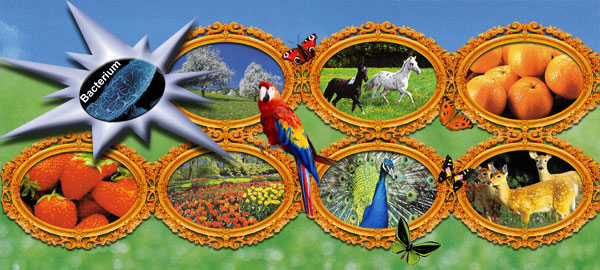
According to the claim of Darwinism, natural selection began with a bacterial cell, and slowly, over billions of years, created such marvels as trees, birds, flowers, ants, antelopes, parrots, strawberries, oranges, peacocks, and horses. This is inconceivable nonsense.

Roger Lewin
In his comments on a new mechanism for evolution postulated by Edward Wiley and Daniel Brooks, Roger Lewin says:
Natural selection, a central feature of neo-Darwinism, is allowed for in Brooks and Wiley's theory, but only as a minor influence. "It can affect survivorship" says Brooks. "It can weed out some of the complexity and so slow down the information decay that results in speciation. It may have a stabilizing effect, but it does not promote speciation. It is not a creative force as many people have suggested."3
A book by four evolutionary biologists titled Parasitology makes the following statement about natural selection:
Natural selection can act only on those biologic properties that already exist; it cannot create properties in order to meet adaptational needs.4
The subject which evolutionists really need to explain is how the above "biologic properties that already exist" came to be. Evolutionists themselves confess that natural selection is unable to provide an answer. That is why the neo-Darwinist theory was proposed. Neo-Darwinism suggests that the biological changes expected to be chosen by natural selection came about by means of mutations. As we shall be seeing, however, mutations are incapable of bringing about the beneficial changes necessary for a living thing to evolve.
Darwin arrived at his conclusion that natural selection was the mechanism which accounted for the origin of species, not by means of experiment or observation, but by a method of comparison.

In Darwin's time there was considerable interest in livestock breeding. Despite frequent claims that Darwin's ideas were inspired by the beaks of Galapagos finches and Malthus's demographic studies, the inspiration behind them actually came from livestock breeding.
Darwin drew an analogy between the breeding of livestock (artificial selection) and natural selection, and concluded that if livestock and plant breeders can improve plants and animals through the use of artificial selection and breed sheep with better wool, cows with more flesh and better running horses, then nature may well do these also. Yet this comparison is misleading in a number of respects. First and foremost, those who breed animals and plants possess the necessary information to select the most suitable and to protect what they select. Darwin's theory, on the other hand, maintains that aimless natural process can replace a rational one.
Gould has made the following comment regarding the invalidity of this comparison:
[Tom] Bethell argues quite correctly [in a piece called "Darwin'sMistake" in Harper's] that [Darwin] relied upon analogy to establish it [his definition of survival of the fittest], a dangerous and slippery strategy.5
There is a limit to even the most expert breeders' ability to produce variation—in other words, varying characteristics—within a species. No new animal species has ever been obtained as a result of animal breeding. The reason for this is not that animal or plant breeders have been unable to continue their artificial selection right to the end, but that the living things in question have reached the end of their genetic limits. The renowned French zoologist Pierre-Paul Grassé has stated that artificial selection testifies against Darwinism:
In spite of the intense pressure generated by artificial selection [eliminating any parent not answering the criteria of choice] over whole millennia, no new species are born. A comparative study of sera, hemoglobins, blood proteins, interfertility, etc., proves that the strains remain the same specific definition. This is not a matter of opinion or subjective classification, but a measurable reality. The fact is that selection gives tangible form to and gathers together all the varieties a genome is capable of producing but does not constitute an innovative evolutionary process.6
To put it another way, the reason why dogs do not turn into lions is not that we have not been breeding them for long enough, but rather that dogs lack the necessary genetic capacity for this to happen.

A tautology is a statement that appears to provide information, but actually does nothing of the sort. "All hats are hats" is a simple example of a tautology. This is a true statement, but one which provides no information.
Natural selection, regarded as the explanation of the origin of species, is not a scientific theory at all, but rather a tautology, a logical vicious circle. A tautology is a statement that appears to provide information, but that is really nothing but circular reasoning. Tautologies provide no new information. They cannot be tested, for which reason they are not scientific. A simple example of a tautology is "All hats are hats." This is a true sentence, but one which provides no information and explains nothing. Tautologies are often employed in jokes and poetry, but they should not be employed in scientific accounts.
Science explains effects in terms of causes. Since causes and effects are different things, they cannot have the same causal explanation. In a tautology, however, the cause and effect are the same, so no explanation is actually given, only the impression of one. When a doctor says, "Your father's hearing impairment has caused his deafness," that is a tautology. The doctor is offering no explanation at all of your father's deafness. The sentence contains two parts that appear to be cause and effect, but actually mean the same thing. One does not explain the other.
In addition to failing to explain anything, tautologies cannot be regarded as scientific because they cannot be tested and can never be refuted.
Natural selection is also formulated as a tautology by evolutionists. Natural selection is the survival of the fittest, and the tautology appears in the expression "of the fittest." "The fittest" are defined as those which survive. When we ask "Who are the fittest?," we are told "Those which survive." The answer to the question "Who survives?" is "The fittest." This means that natural selection is "the survival of the survivors." This is circular reasoning.
Some evolutionists maintain that natural selection is not a tautology, and that this is a misinterpretation by the proponents of Creation. The fact is, however, that prominent evolutionists also accept that natural selection is a tautology. That is why we feel the need to devote some space to statements by prominent evolutionists maintaining that natural selection is indeed tautological.
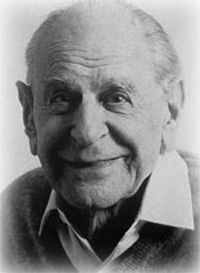
Karl Popper (1902-1994)
For example, the British geneticist J.B.S. Haldane accepts the tautological nature of natural selection by saying: "...the phrase 'survival of the fittest' is something of a tautology."7
Professor of Ecology R.H. Peters from Canada's McGill University also states that theories of evolution are tautological and that they cannot be regarded as scientific:
I argue that the "theory of evolution" does not make predictions, so far as ecology is concerned, but is instead a logical formula which can be used only to classify empiricisms [theories] and to show the relationships which such a classification implies. These theories are actually tautologies and, as such, cannot make empirically testable predictions. They are not scientific theories at all.8
Professor Steven Stanley of Johns Hopkins University has this to say about natural selection in his book Macroevolution: Pattern and Process:
I tend to agree with those who have viewed natural selection as a tautology rather than a true theory.9
Karl Popper, regarded as one of the major philosophers of the twentieth century, cites evolutionists such as Ronald Fisher, J.B.S. Haldane and George Gaylord Simpson as examples, and says:
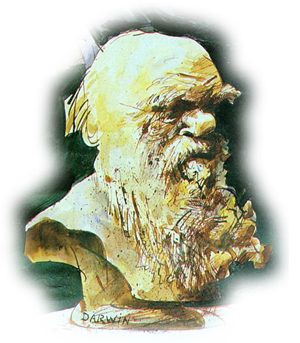
Despite being the person who suggested natural selection and the theory of evolution, Darwin said, "I shall know that the theory of Natural Selection, is, in the main, safe; that it includes, as now put forth, many errors, is almost certain, though I cannot see them." (Charles Darwin to C. Lyell, October 11, 1859)
Some of the greatest contemporary Darwinists themselves formulate the theory in such a way that it amounts to the tautology that those organisms that leave most offspring leave most offspring.10
Clearly, if someone wishes to learn how a bacterial cell could turn into a fish, a fish into a bird, and a reptile into a human being, it is no answer to tell him that "organisms which leave the most offspring are those which leave most offspring." Natural selection cannot prove anything about the claim that species evolve. Despite being aware of this, evolutionists play word and logic games and attempt to portray natural selection and evolution as a logical-sounding hypothesis.
Some evolutionists, such as Gould, are undecided when it comes to defending natural selection. Gould expresses that unwillingness in the words: "I, although I wear the Darwinian label with some pride, am not among the most ardent defenders of natural selection."11 Despite being the person who proposed the theory of natural selection, Darwin himself offered a rather prescient analysis: "I shall know that the theory of Natural Selection, is, in the main, safe; that it includes, as now put forth, many errors, is almost certain, though I cannot see them."12
It is most surprising and thought-provoking that evolutionist scientists should keep repeating this circular reasoning and regard natural selection as a force with the capacity to cause evolution. Many people believe in the theory of evolution without really knowing what it is they believe in. The philosopher of science Arthur Koestler expresses this fact:
In the meantime, the educated public continues to believe that Darwin has provided all the relevant answers by the magic formula of random mutations plus natural selection—quite unaware of the fact that random mutations have turned out to be irrelevant and natural selection a tautology.13
It is suggested in Science and Creationism that "Although the genetic variation on which natural selection works is based on random or chance elements, natural selection itself produces "adaptive" change—the very opposite of chance." (Science and Creationism, p. 10). The evolutionist authors of the book are employing misleading expressions here. They seek to give the impression that no matter how random the mutations selected by natural selection may be, since natural selection selects those that are best adapted, the overall result is not random. It is as though a conscious mechanism entered the equation.

It is impossible for an unconscious and blind mechanism to have created the infinite variety of life on Earth.
However, anyone examining the subject a little deeper will see through the deception here: Natural selection is not a conscious mechanism capable of planning or foresight. This is most clearly revealed in the study of irreducibly complex organs: these structures only provide any benefit to an organism when they are fully formed. For instance, during the transition from water to land, which evolutionists so fondly dream of, natural selection would not select changes in a fish that might have produced only a few components of a lung. A structure that lacks any of the characteristics of a perfect lung is of no benefit to a land creature. Since natural selection is also unable to calculate that a fish might shortly emerge onto land and would therefore need a lung—and that the lung would therefore need to undergo many intermediate stages waiting for the accumulation of alterations—it would not select those changes. In this way, an animal with only a few of the necessary changes would be eliminated.
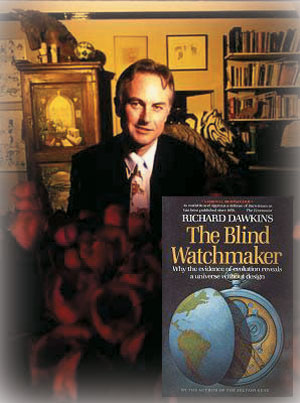
Richard Dawkins and his book The Blind Watchmaker
As the world-famous historian of biology William Coleman indicates:
The organism, being a functionally integrated whole each part of which stood in close relation to every other part, could not, under pain of almost immediate extinction, depart significantly from the norms established for the species by the first anatomical rule.
A major change, for example, a sharp increase in the heart beat or the diminution by half of the kidney and thus a reduction in renal secretion, would by itself have wrought havoc with the general constitution of the animal. In order that an animal might persist after a change of this magnitude it would be necessary that the other organs of the body be also proportionally modified. In other words, an organism must change en bloc or not at all. Only saltatory modification could occur, and this idea was to Cuvier, as it is to most modern zoologists, but for very different reasons, unverified and basically absurd. Transmutation by the accumulation of alterations, great or small, would thus be impossible.14
Evolutionists also accept that natural selection is an unconscious, blind process. Richard Dawkins, for example, one of the most passionate proponents of the theory of evolution, defines natural selection in these terms in his book The Blind Watchmaker:
Natural selection, the blind, unconscious, automatic process which Darwin discovered, and which we now know is the explanation for the existence and apparently purposeful form of all life, has no purpose in mind. It has no mind and no mind's eye. It does not plan for the future. It has no vision, no foresight, no sight at all. If it can be said to play the role of watchmaker in nature, it is the blind watchmaker.15
It is impossible for an unconscious, blind mechanism to have created the complex information and design in living things. Evolutionists, who seek to portray natural selection as a divine creator of all living things, are no different from worshippers of idols and totems—pagans who ascribe divinity to natural events such as thunder and lightning. They are merely the twenty-first century version of such pagans.
1 Stephen Jay Gould, "The Return of Hopeful Monsters," History, vol. 86, July-August 1977, p. 28.
2 S.J. Gould, Scientific American, October 1994, p. 85. (emphasis added)
3 Science, 1982, no. 217, pp. 1239-1240.
4 Noble, et al., Lea and Febiger, "Evolution of Parasitism," Parasitology, sixth edition, 1989, p. 516.
5 S.J. Gould, Ever since Darwin, New York: W. W. Norton., 1977, pp. 40-41.
6 Pierre-Paul Grassé, Evolution of Living Organisms, New York: Academic Press, 1977, pp. 124-125.
7 J.B.S. Haldane, "Darwinism Under Revision," Rationalist Annual (1935), p. 24.
8 R.H. Peters, "Tautology in Evolution and Ecology," American Naturalist, 1976, vol. 110, no. 1, p. 1. (emphasis his)
9 Steven Stanley, Macroevolution: Pattern and Process, Johns Hopkins University, 1979, p. 193.
10 Popper, K.R., A Pocket Popper, ed. David Miller, London: Fontana, 1983, p. 242
11 S.J. Gould, Ever Since Darwin, New York: W. W. Norton, 1977, p. 39
12 Francis Darwin, The Life and Letters of Charles Darwin, vol. II, New York: D, Appleton and Company, 1888, Charles Darwin to C. Lyell, October 11, 1859. (emphasis added)
13 Arthur Koestler, Janus: A Summing Up, Vintage Books, 1978, p. 185.
14 W. Coleman, Georges Cuvier: Zoologist, Cambridge: Harvard University Press, Mass, pp. 172-173.
15 Richard Dawkins, The Blind Watchmaker, Harmondsworth, Penguin, 1988, p. 